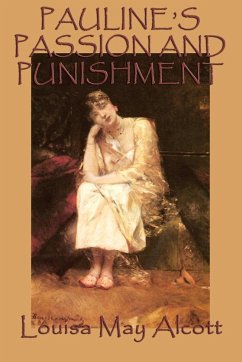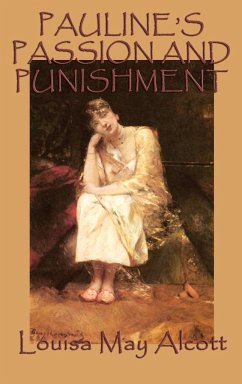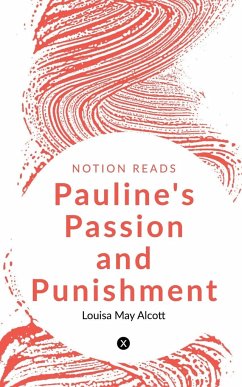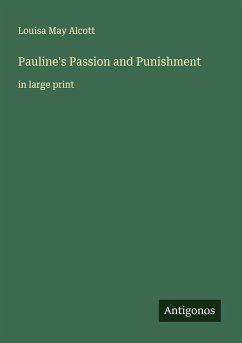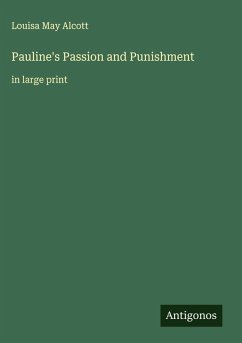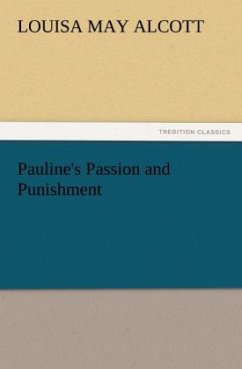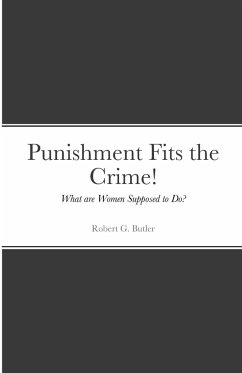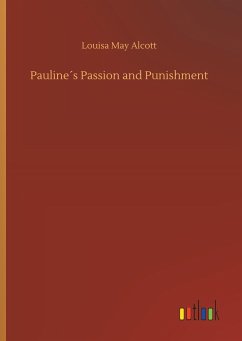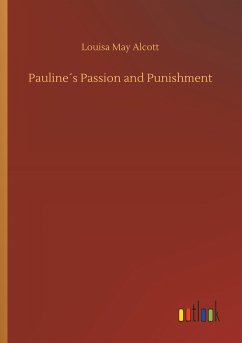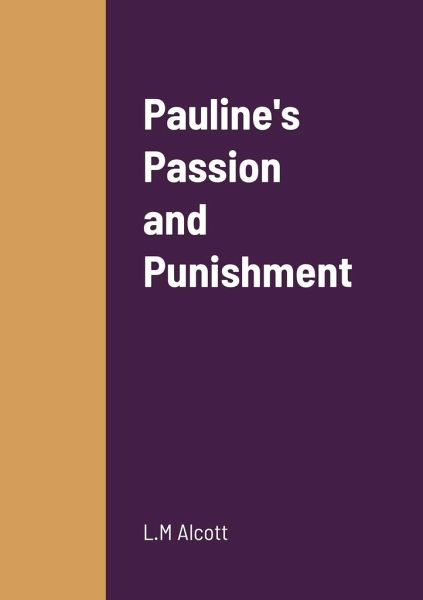
Pauline's Passion and Punishment
Versandkostenfrei!
Versandfertig in 1-2 Wochen
24,99 €
inkl. MwSt.

PAYBACK Punkte
12 °P sammeln!
Pauline's Passion and Punishment By Louisa May AlcottThe beautiful Pauline has been wronged and sets about getting a little her own back. Collateral damage ensues in this tale of revenge and it's consequences.To and fro, like a wild creature in its cage, paced that handsome woman, with bent head, locked hands, and restless steps. Some mental storm, swift and sudden as a tempest of the tropics, had swept over her and left its marks behind. As if in anger at the beauty now proved powerless, all ornaments had been flung away, yet still it shone undimmed, and filled her with a passionate regret. A...
Pauline's Passion and Punishment By Louisa May AlcottThe beautiful Pauline has been wronged and sets about getting a little her own back. Collateral damage ensues in this tale of revenge and it's consequences.To and fro, like a wild creature in its cage, paced that handsome woman, with bent head, locked hands, and restless steps. Some mental storm, swift and sudden as a tempest of the tropics, had swept over her and left its marks behind. As if in anger at the beauty now proved powerless, all ornaments had been flung away, yet still it shone undimmed, and filled her with a passionate regret. A jewel glittered at her feet, leaving the lace rent to shreds on the indignant bosom that had worn it the wreaths of hair that had crowned her with a woman's most womanly adornment fell disordered upon shoulders that gleamed the fairer for the scarlet of the pomegranate flowers clinging to the bright meshes that had imprisoned them an hour ago and over the face, once so affluent in youthful bloom, a stern pallor had fallen like a blight, for pride was slowly conquering passion, and despair had murdered hope. Pausing in her troubled march, she swept away the curtain swaying in the wind and looked out, as if imploring help from Nature, the great mother of us all. A summer moon rode high in a cloudless heaven, and far as eye could reach stretched the green wilderness of a Cuban cafetal. No forest, but a tropical orchard, rich in lime, banana, plantain, palm, and orange trees, under whose protective shade grew the evergreen coffee plant, whose dark-red berries are the fortune of their possessor, and the luxury of one-half the world. Wide avenues diverging from the mansion, with its belt of brilliant shrubs and flowers, formed shadowy vistas, along which, on the wings of the wind, came a breath of far-off music, like a wooing voice for the magic of night and distance lulled the cadence of a Spanish contradanza to a trance of sound, soft, subdued, and infinitely sweet. It was a southern scene, but not a southern face that looked out upon it with such unerring glance there was no southern languor in the figure, stately and erect no southern swarthiness on fairest cheek and arm no southern darkness in the shadowy gold of the neglected hair the light frost of northern snows lurked in the features, delicately cut, yet vividly alive, betraying a temperament ardent, dominant, and subtle.For passion burned in the deep eyes, changing their violet to black.





